What if Everything You Owned Was for Rent?
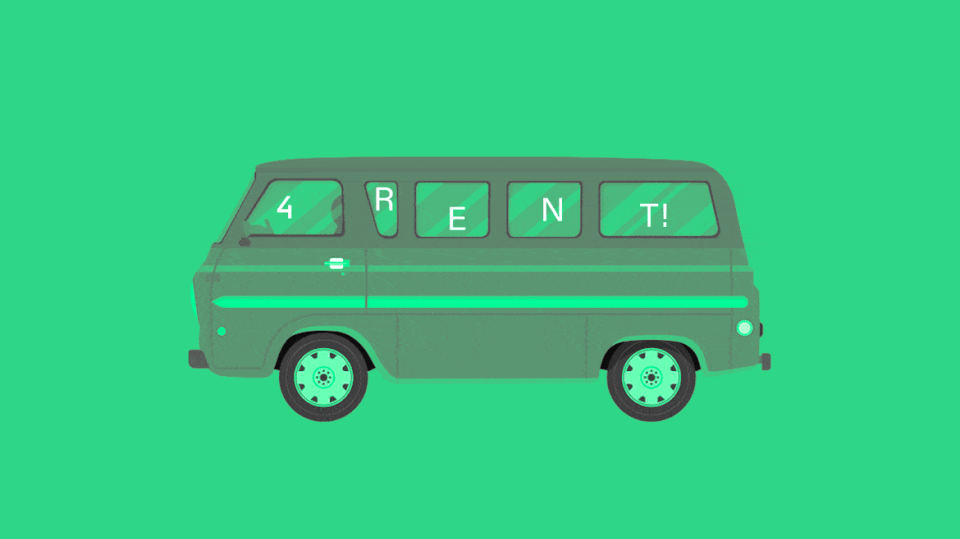
A couple weeks ago, as I gathered some friends around my dining room table in Portland, Oregon, my phone lit up. It was an inquiry on the travel booking platform Airbnb, from a frazzled visitor looking for a place to stay after the host of the home she’d reserved abruptly canceled. Was mine available?
Sure, I wrote back. But it was 9 p.m., and I still needed to pack for a nine-day trip on Oregon’s John Day River the next day. Can you wait an hour? I asked.
To my relief, she found somewhere else to stay. Had she booked my two-bedroom bungalow, I’d have sent my guests home and dashed from room to room to snatch up clothes, food, and gear, stuff them into the car, quickly clean the house and figure out a place to sleep that night. In seven years of renting my home out on Airbnb, it would have set a record, a request that came in five hours after the 4 p.m. check-in time. But my life is for rent. I try to be ready for anything.
A way of living that boggles my friends’ minds began with some urgency. Laid off from my last full-time gig in journalism several years ago, I had a few grand in cash and a looming mortgage payment about to sap half of my meager savings. The summer had just begun, and I had little interest in an exhausting search for a new job in a flagging industry. But I needed quick cash, and Airbnb was a lifeline.
I tidied up, took a few photos of the northeast Portland house I’d purchased only a year earlier, created the listing and broadcast my living room to the world. At the apex of a golden Oregon summer, the bookings rolled in. Within a few days, my new home would be someone else’s, and someone else’s after that, through to Labor Day. I threw some camping gear in a car and a kayak on the roof and took off, exploring the Beaver State in its prime.
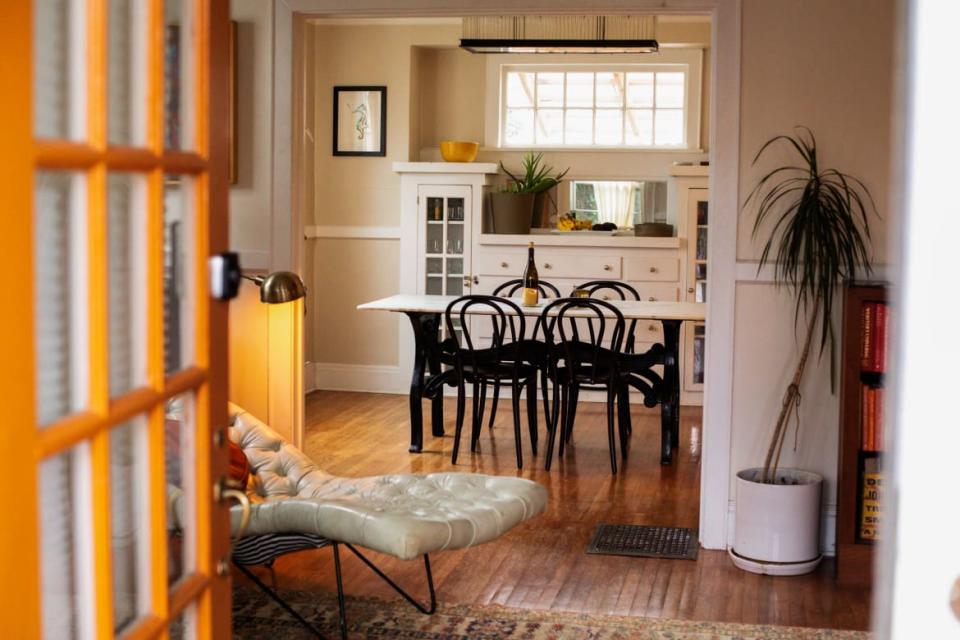
My dining room, advertised to the world via Airbnb.
When I didn’t need to be in Portland, I set up homey camps along rivers I love: the Deschutes, the McKenzie, the Klickitat. When I had a dentist or a doctor’s appointment in town, I’d find some more nascent refuge, paddling down a stretch of the nearby Sandy or Clackamas rivers and setting up a quick camp on a wild bank, a half hour from downtown Portland. In a month, my bank balance doubled. I was hooked.
Seven years later, I’m an Airbnb Superhost, the owner of a custom-built camper van and a Subaru Outback that tows a teardrop trailer, all for rent on three different platforms, all boxing me into a velvet coffin of lifestyle that makes finding another full-time job hard to fathom. In some ways, it’s a twist on vanlife, the movement popularized by millennials priced out of the housing market, opting to wait out the false promise of the American Dream and live as unencumbered nomads on four wheels. Unlike these freewheelers, my vagabonding is the product of a growing sharing economy fleet, grounded in the same root philosophy: that the promise of stability and sanity that once came with traditional careers, 401(k)s, and real estate purchases is a wobbly one. In its place, the rustic-but-flexible culture of vanlife, in its many forms.
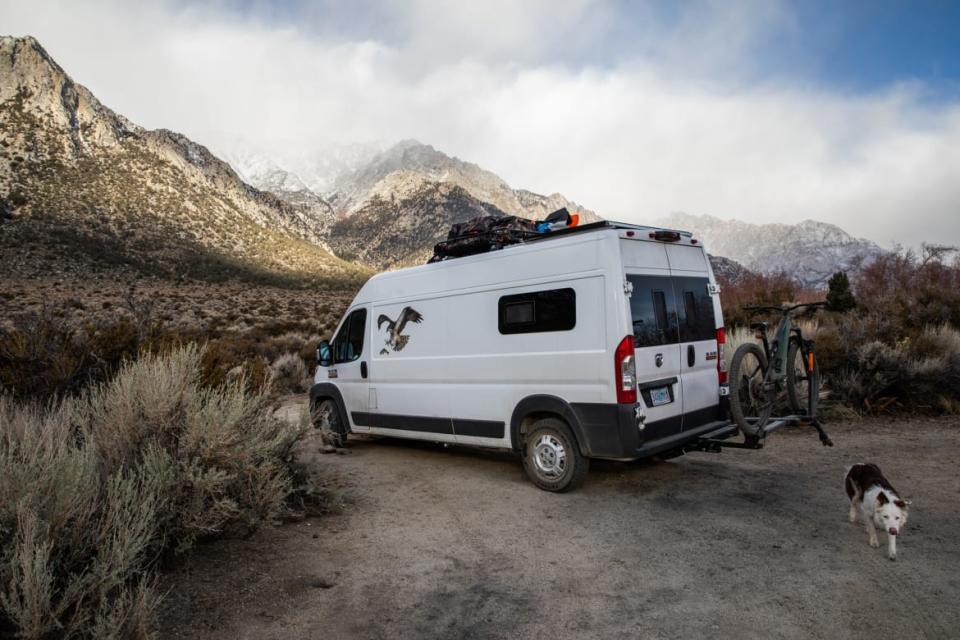
California’s Alabama Hills has ample parking for vans, but the best spots tend to get snatched up quickly.
Thanks to a tide of wildfire refugees and city slickers fleeing crowded metropolises in 2020, it was a banner year for my Airbnb listing. I plowed proceeds into a refurbished kitchen, bathroom, basement studio and bespoke backyard covered deck and sauna, crafted from comely western red cedar planks. Then, in search of a more stable housing option when the house was booked, I found a Ram Promaster for sale and stuffed a queen-size mattress and some camping gear in it, exploring Oregon that way for much of the summer, ecstatic at never having to set up a tent. By the fall, I had enough proceeds to trick the van out, and I found an Insta-famous couple of full-time vanlifers, Nate Cotton and Courtnie Hamel, who agreed to come live in my house for a month and convert the van into a work of art, replete with solar panels, radiant heat, cedar cabinets and plush memory foam cushions that would morph from bed to couch, in seconds. By the following spring, the van was ready, and I skipped off to sunny Arizona while Airbnb guests took over the house for two months, feeding my gregarious cat so I didn’t have to.
When I got back, I met the founder of GoCamp, Deborah Kane, who, after marveling at Cotton and Hamel’s craftsmanship, urged me to list the van on the site. I could always block off the calendar when I needed it, she reasoned. I obliged, and immediately the van started racking up bookings. I figured I’d car-camp when both the van and the house were occupied, but my 12-year-old hatchback sagged under the weight of a full load of gear, and there was a nationwide rental car shortage making headlines. So I bought an Outback, and promptly listed it on Turo. If all three were booked, I’d be pulling in some $800 a day, more than enough for anything from a staycation in a nice Portland hotel to a last-minute jaunt to Greece.
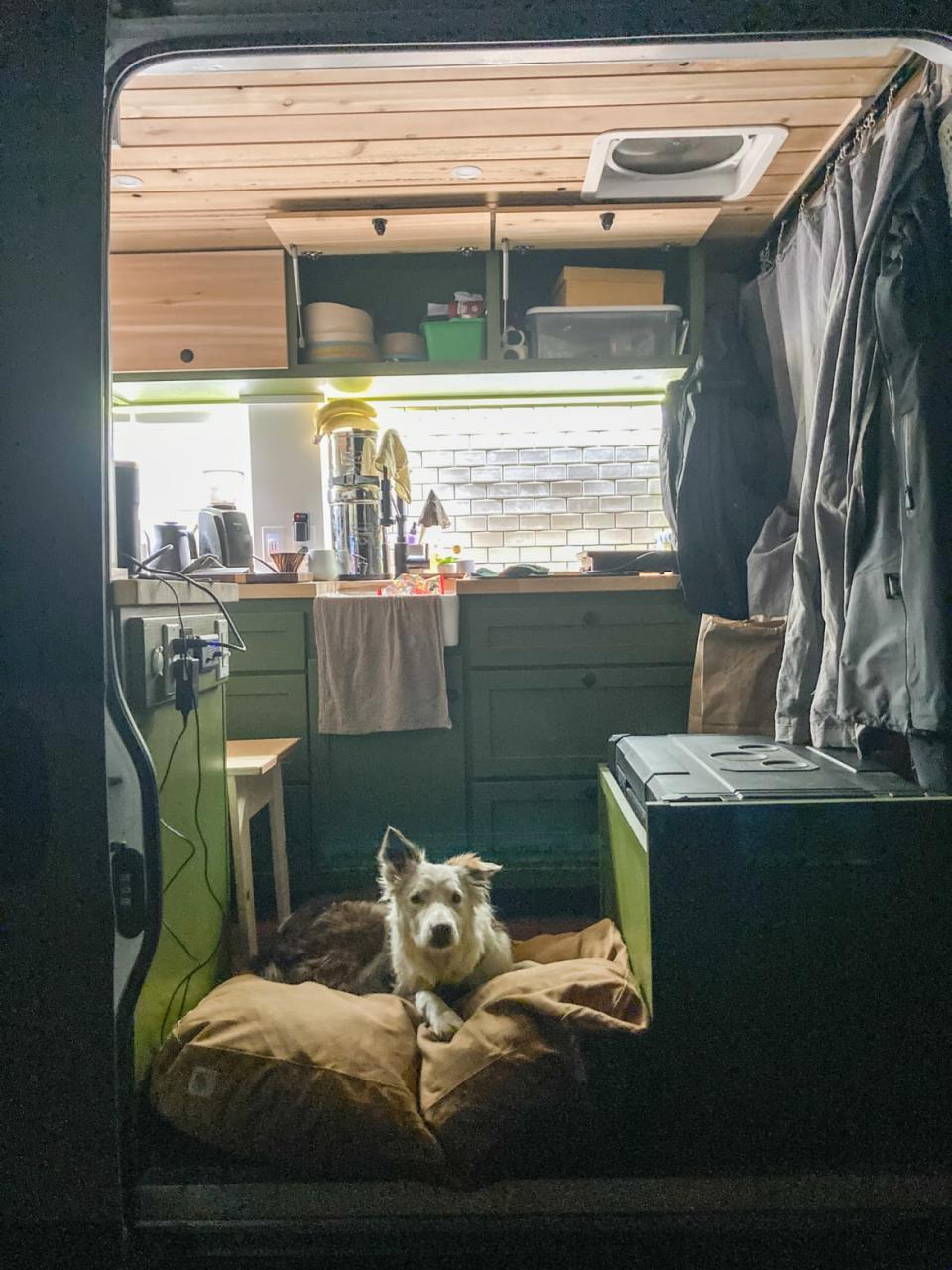
Alsea the border collie makes for a fine van companion, long as she gets enough exercise during the day.
What followed was a chaotic summer, as I worked out the kinks of managing three hospitality businesses while packing and unpacking for wherever I was going to stay. Most Airbnb guests are wonderful. Sometimes they’re impossible, or they’ve learned that amassing an impressive enough list of “grievances” upon check-in might win them a refund. I once awoke in Iceland to a series of irritated messages from a guest who needed tech support for the entertainment center (he couldn’t find the receiver’s power button) which I delivered from a hotel bed. I’ve fielded angry complaints about a single strand of dog hair, dust on the top of a door sill, poop in a ditch at the far end of my backyard. One guest had a blind dog that she insisted was agitated because it could smell my cat, lounging on the outdoor couch.
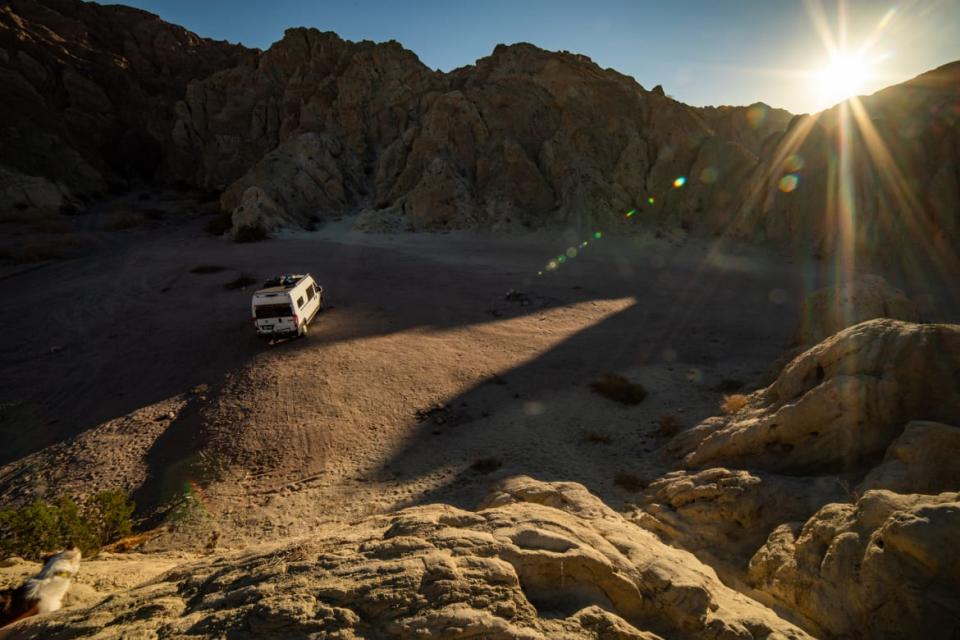
Finding the perfect parking spot is one of the bigger challenges of vanlife. This one, near Palm Springs, lies at the end of a long, bumpy road.
The van rental business is no less stressful, at times. The Promaster is a salvage (a terrible decision, in hindsight) and it needed a slew of repairs in the two years after I bought it, with $1,000-plus mechanic bills following what felt like every booking, from the A/C to a sliding door sensor to a coolant leak determined to stay leaky. One couple took it to a casino and left a dog inside it while they gambled. The pooch trashed the inside, in a desperate attempt to escape. Another parked it in downtown Seattle so they could stay in a hotel for a night, and it was promptly burgled, everything that could easily be removed gone by morning.
Renting the Outback promised to be easier, because it’s brand new, and it’s a car. Simple enough, right? But a Russian family called me repeatedly during their eight-day trip, once because they couldn’t source a loud beeping sound (kids weren’t wearing seatbelts) and another because they’d somehow tripped the alarm and couldn’t start the car. I didn’t even know the car had an alarm, much less how to reset it.
Careful logistics, a conservation ethic and impeccable organization skills are critical for this lifestyle to work. Thankfully, there’s an entire industry of product companies and apps catering to the whims of us nomads. This winter, I added hauling capacity to the van with a neat roof rack system from Front Runner, and moved bicycles to an elegant hitch-mounted rack from Kuat. A SureCall signal booster supercharges my cell service, and mobile hotspot coverage. Solar panels from Jackery keep power banks from Lion Energy topped off, so I never run out of juice when I’m camping off the grid, even if I never plug into a wall. To find places to camp, I use iOverlander and Harvest Hosts, a cool platform that connects wineries, distilleries and breweries with travelers who might want to park a van in a vineyard as they sip on pinots and hazy IPAs.
When it works, the whole gambit, it really works. This winter, I took another two-month trip to southern California and Arizona, breaking up rustic van stays with a few splurges at three epic wellness resorts: Canyon Ranch in Tucson, Castle Hot Springs north of Phoenix and Civana, near Scottsdale. As a working journalist, I’d never be able to justify snowbirding to the desert to escape the worst of an Oregon winter. As a sharing economy entrepreneur? I was flush.
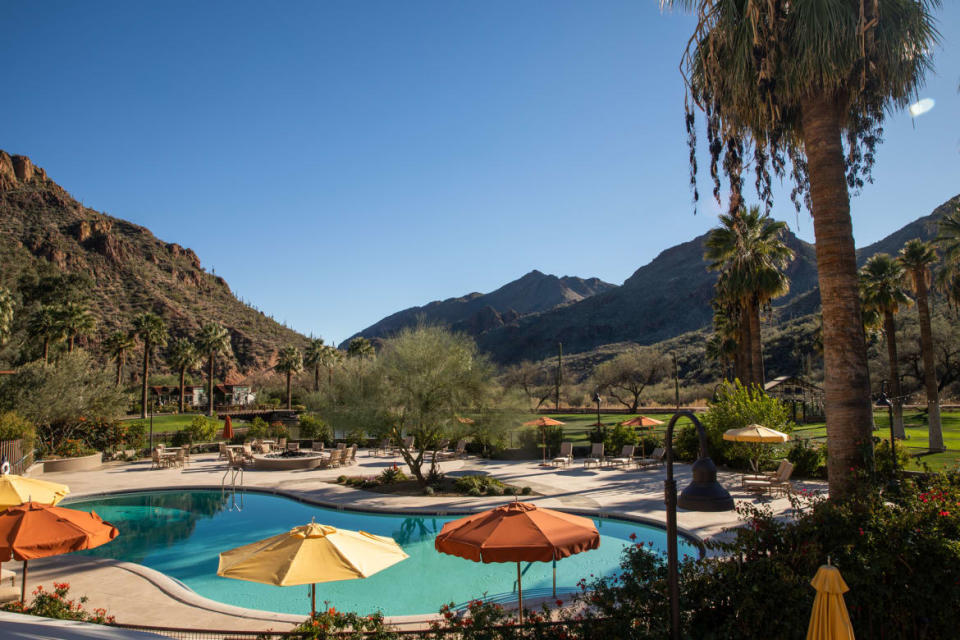
Occasional splurges on fancy properties like Castle Hot Springs are a vital chance to recharge.
When I got home, I signed up for Trusted Housesitters, a smooth platform that connects animal-loving travelers with hosts who need someone carefully vetted to stay in their homes and care for pets, while traveling. My first “sit” was for two charming cats in the Willamette Valley town of Philomath, a 40-minute drive from one of my favorite mountain biking trails. The day it started, I got a two-week Airbnb booking. Sharing economy synergy at its finest.
There are plenty of real costs to this way of unplugging from the matrix. Romantic relationships endure all kinds of turmoil. Some days are simply exhausting, sorting through belongings scattered across my driveway or in my front yard while I reorganize for the next trip. It has taken a time to get used to the idea that my home isn’t really mine. It’s more of a timeshare property that I stay in only when no one else wants it. That I might have to abandon with a few hours’ notice.
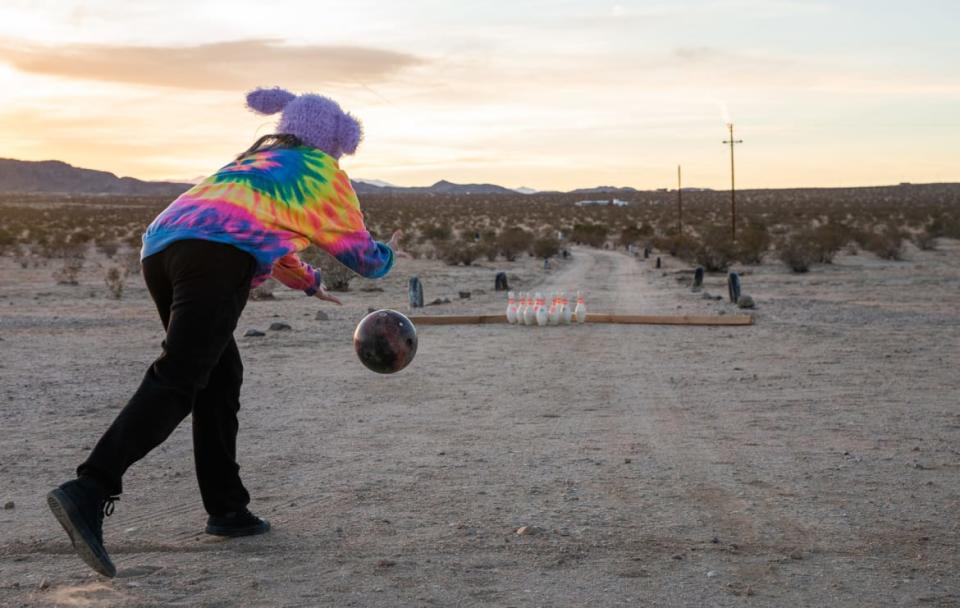
An impromptu “lawn bowling” game at a campground for van lifers near Joshua Tree. With sparse amenities like a solar shower, kitchen, and composting toilet, it has all the features a nomad needs.
Still, as I write this, I am nestled in a gently swinging hammock, shaded from an already oppressively hot Oregon summer by a forest of crimson pine trees, steps from a cool, gurgling creek, spreading duck liver pate and local goat cheese on rice crackers, plotting an upcoming kayaking trip on the Metolius River and then an evening float on the Deschutes in Bend, where I’ll be able to hear Bob Dylan croon from the stage at the nearby Hayden Homes Amphitheater. It’s not a bad life, really.
Get the Daily Beast's biggest scoops and scandals delivered right to your inbox. Sign up now.
Stay informed and gain unlimited access to the Daily Beast's unmatched reporting. Subscribe now.

 generic
generic 